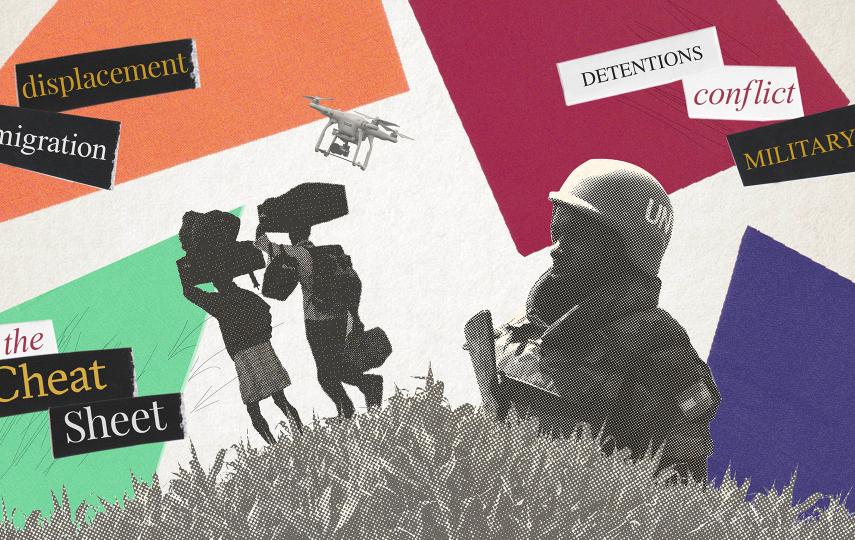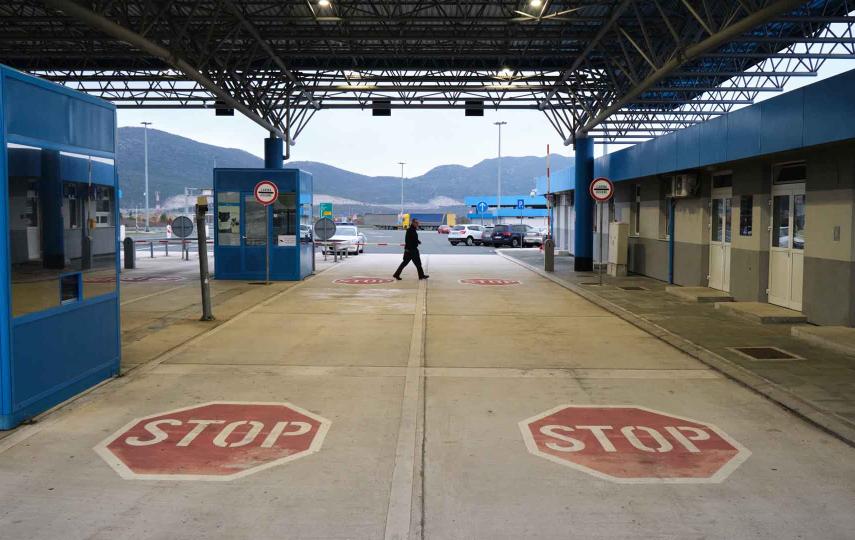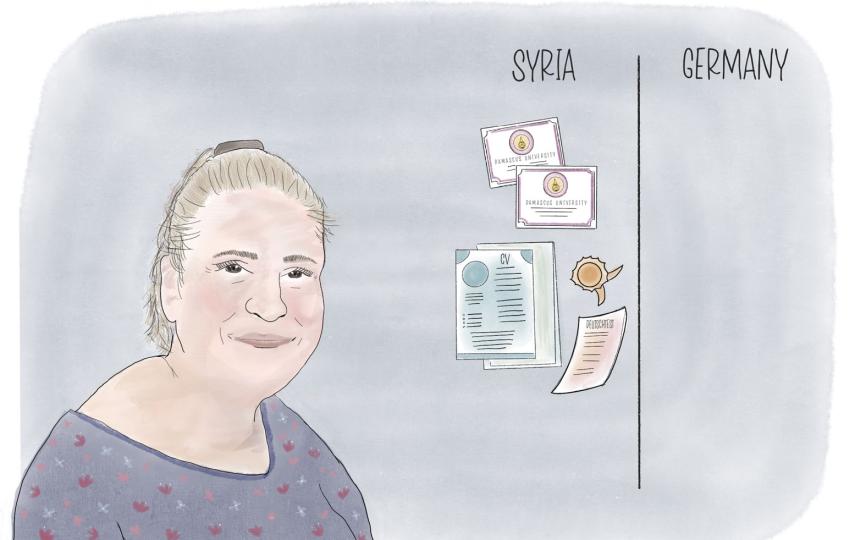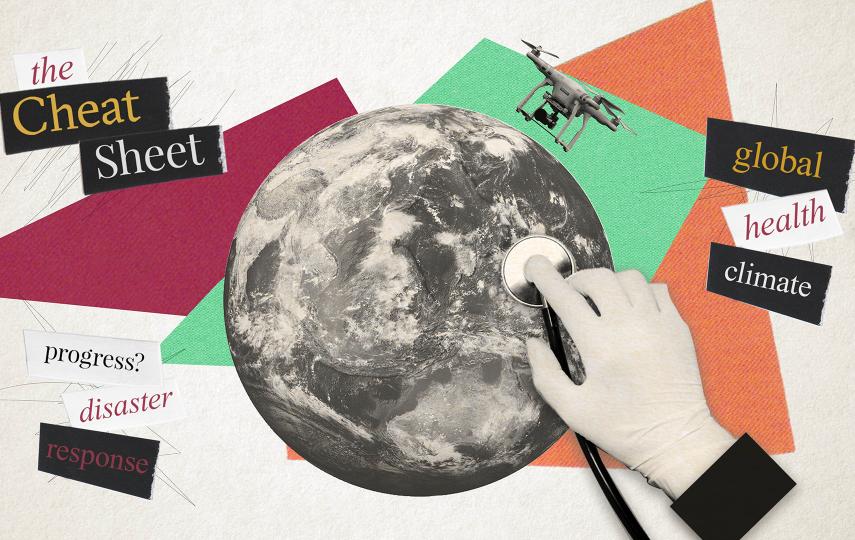It was early morning during my first week of high school in Libya, and I was all alone on the bus.
As we drove by one neighbourhood in my hometown of Sirte, the bus filled with the smell of what I later realised was rotting bodies. It was still dark, but I could see enough to tell that all the houses were destroyed. They had no doors or windows; some were nothing but ash.
I nearly vomited, and covered my nose the entire ride to school.
That was November 2018, and things haven’t improved much.
I had been living in Canada since 2013 – I moved there with my parents and younger siblings when I was 12 because my mom wanted to pursue her PhD in engineering.
Before we left Libya, Canada was just a dot on the map. Part of me was excited to see a new place and start over. But another part of me was crying on the way to the airport.
Six years later, my family and I had to return to Libya, thanks to bureaucracy. Our passports were about to expire. They were green – that means they were issued before the civil war and the 2011 ouster of Muammar Gaddafi. The Libyan embassy said it could only renew the post-Gaddafi blue booklets.
So we went back to Sirte, the city I grew up in and had already fled once, during the fight against Gaddafi. While I was busy building a life in Montreal, Sirte was occupied, in 2014, by so-called Islamic State, then liberated two years later.
The international media never covered Sirte much. Even though I knew things were bad, seeing the destruction in person was horrifying. So much of the city had been ruined and still hasn’t been rebuilt.
It’s going to take years, generations even, to rebuild Sirte and Libya into a place where its people can have their basic needs met, and live in safety and freedom. My future is elsewhere.
The years of suffering were etched on people’s faces. My neighbours, relatives, and people I don’t even know on the street still talk about life under IS, and about the war against it, about the boys of 13 and younger fighting on both sides.
My parents and siblings got their new blue passports and returned to Canada after a month, but I’m 18 and my mom said I had to stay and finish my last year of high school in Sirte.
So I’m still stuck here, living with relatives, and finding it hard to cope.
The electricity cuts out for six or seven hours at a time every few days, and the running water goes off with it. It’s all or nothing. We fill up water bottles and store them for when this happens, and if I have homework to do I use a candle or the light on my phone if it has battery. Sometimes I just sit in the dark waiting for the power to come back on, or I go on the roof to look at the stars.
Sirte is nothing like the place I remember from my childhood, when Saturdays were spent on the beach and Fridays were for olive- and orange-picking. After school, I would meet up with the other kids in my neighbourhood to play “koora” – football with a water bottle filled with sand.
Lots of my relatives are out of work, and others haven’t returned to Sirte, either because their houses were destroyed in the fight against IS or because they can’t afford rent. Food prices are high, so lots of people have begun growing their own fruit and vegetables.
The cheapest thing in Libya these days is a life.
I don’t go to the beach much anymore; actually I don’t really go anywhere alone for long. It seems like every day I hear about someone who was killed or kidnapped, by militias, gangs, or explosives left over from the war. Just look at what’s happening in Tripoli right now, with rival militias fighting for the capital.
I’m also just uncomfortable in Sirte these days. It’s a small city – around 150,000 people before the war, even less now – and I feel like that makes it more conservative than somewhere like Tripoli. I don’t wear the hijab, and that means some people stare and make comments like ‘you should straighten your hair’ or ‘you need to cover up or else’. Sometimes I cover my hair with a hoodie or a scarf just to avoid the attention.
When I first came back to Sirte I kept hearing about rules – women shouldn’t go here, do that.
It’s hard to be a woman here, and especially one with dark skin like me. I get called names on a daily basis. Of course there is racism in Canada, but it’s especially hard to take here, given that most of the population are also of Arab or African descent. I have cousins with darker skin than me and they get harassed too, even by our own lighter-skinned relatives.
I hope to be a journalist some day, so I can share my story as a Libyan woman of colour and help others share theirs. But I don’t see myself achieving that dream in Libya, and I’m hoping to leave as soon as I graduate.
I’ll never forget Sirte’s sunny days, the blue sea, and the most delicious fruit I’ve ever tasted. I just think it’s going to take years, generations even, to rebuild Sirte and Libya into a place where its people can have their basic needs met, and live in safety and freedom. My future is elsewhere.
In the meantime, I’m finishing school and passing the time. I figure what doesn’t kill me gives me something new to write about.
(TOP PHOTO: Asel in Sirte shortly after she returned to Libya in late 2018. Mohamed Alaghori/TNH)
aa/as/ag



